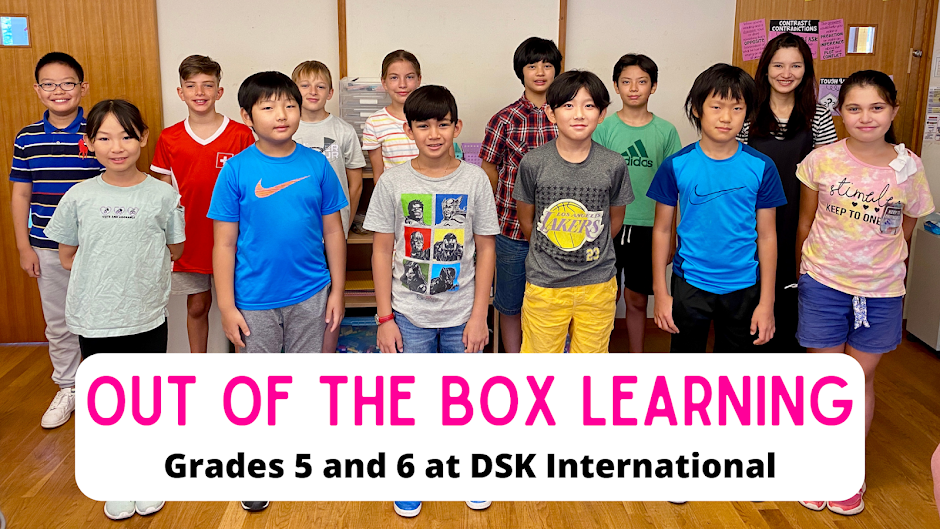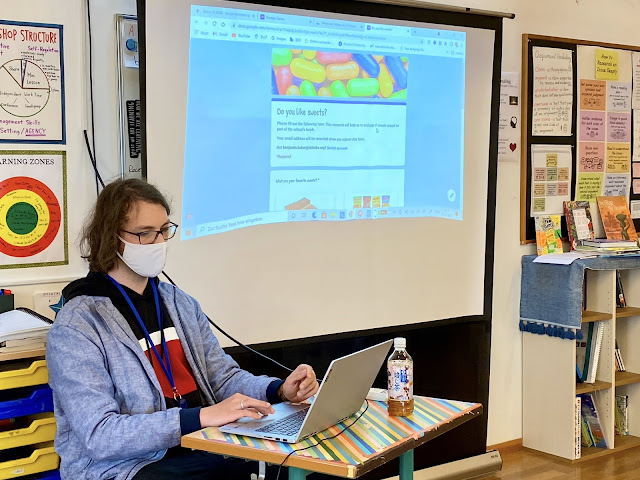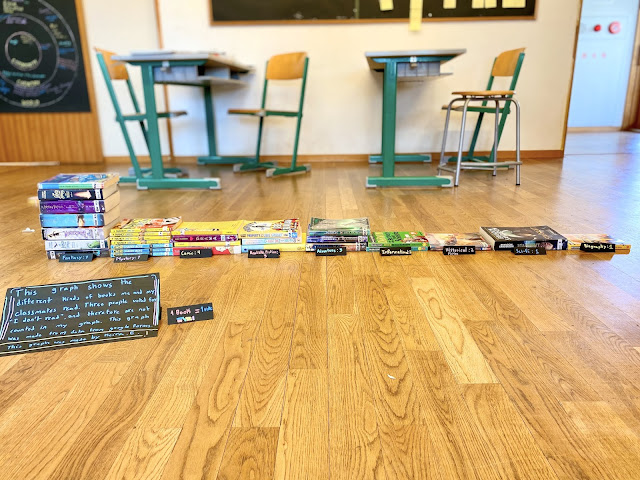Wednesday, April 21, 2021
Surveys and Infographics
Friday, April 9, 2021
PYPX Q&A
Below is a list of answers to the questions asked during the online Parent Information Session which was held on April 8th. Please feel free to email me if you have any further questions or concerns about the exhibition.
Key Phrases and Vocabulary - What do they mean?
Exhibition
The culmination of our students' education in the PYP.
Bringing together all of the aspects of the programme through their own in-depth inquiry.
Demonstrating the process they have gone through, their learning, solutions, and action they will take.
Central Idea
A big idea that defines the work. It is a big, open statement that is valid anywhere in the world.
Lines of inquiry
How we break down our central idea. What exactly are we going to inquire into?
Student questions
Developing the questions into lines of inquiry, which we can seek answers to and present our findings.
How do they find their topic for the exhibition?
This is done in the lead up to the exhibition, discussing in class together with their classmates and the teacher.
How do they choose their groups?
We look at two factors - what they are interested in and who they work well with.
We then allocate groups with this in mind. Sometimes it may involve a conversation with a student about adjusting the topic they want to follow to make it fit better with a student they want to be with. So they are all motivated and happy to be with and work with their fellow group members.
How does the group come up with their own central idea?
We will start the exhibition by discussing students' interests. From this we will then group the students based on similar interests and each will then write their group central idea.
How does the overall unit central idea connect to the students’ exhibition central ideas?
The central idea we publish on the school Programme of Inquiry is
Understanding one's uniqueness can lead to positive contributions to society.
This sets the theme for the Exhibition, by suggesting that the result of their research will lead to solutions and action which can be taken by the individual student.
The central ideas for each group will be different, created by them based on what they will inquire into.
What about the lines of inquiry, will they have their own individual ones?
No, the group will also generate lines of inquiry they will share as a group.
How do they do their own work in the group?
Once we have each group establish a central idea and lines of inquiry, they will develop their own individual student questions they will research into and present their findings as an individual.
How do group and individual work come together?
For a physical, on-site exhibition you will see students in a group sharing the same display space, but each having their own physical area to present their research and findings. They will be able to talk to you about this and how it connects to the group's central idea and lines of inquiry.
Is the child assessed as an individual?
Yes. They are a group member but they will be assessed on how they collaborated with others and what was the result of their own individual research.
What are the assessment criteria?
The exhibition is a chance for the students to put together and demonstrate all the components of the PYP that they have been working on and developing. It is not a pass or fail but we do look to see evidence of these -
Knowledge - what has the student learned?
Skills - how has the student incorporated and developed their thinking, social, research, communication and self-management skills
Learner Profile - How has the student incorporated the attributes of the IB learner profile (Inquirer, Knowledgeable, Thinker, Communicator, Principled, Open Minded, Caring, RiskTakers, Balanced, Reflective)
Action - What conclusions has the student made and how can they take action based on this?
How do parents know where their children are?
Each child will have a planner. In this they will plan their own work and what they plan to do over the week. They will also reflect weekly on how successful they were in achieving their goals and what they will do next.
How can we support our children?
Please talk with your child about their interests and what they want to do. Please also look at the planner with your child once we start the exhibition, see how they are doing and what support and help you can offer as a parent.
What is a mentor?
Mentors are staff members who will work with a group of students to help them on their exhibition journey. They will typically meet once a week to look at what the students have been doing and what they plan to do next. To offer support, guidance, and help and also to just make sure they are managing okay.
How are teacher mentors assigned?
Once groups are formed we will allocate a mentor based on the staff members’ backgrounds.
What about specialist lessons?
Our specialist teachers are there to offer support in their area of expertise. This may happen in the specialists' lessons themselves or at other times. Students are free to approach the teachers to ask for whatever help they may need.
What is the timeline?
Asking 2 - 3 weeks
Identify interests, groups assigned
Developing the group central idea, lines of inquiry and identifying the questions they want to inquire into individually
Thinking 3 - 4 weeks
Identifying resources, researching, sorting out findings, adjusting plans with mentor and group members to meet goals
Doing 1 - 2 weeks
collecting evidence of the work to show learning process, creating authentic pieces/performances, reflecting, taking action
Each aspect can be different for each group depending on how they manage and develop their inquiry.









